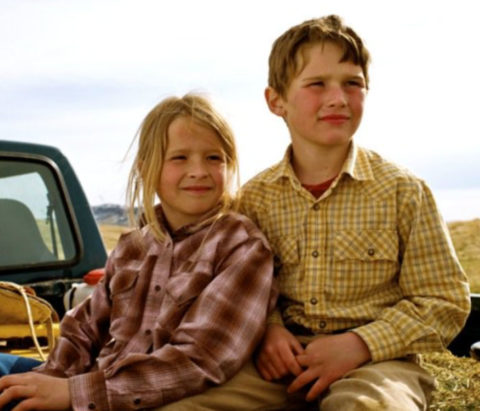Raising Kids Down on the Farm

By Lisa Guenther, Field Editor, March 23, 2015 last updated April 28, 2019
It’s a cliché, but it’s a cliché because there’s some truth to it. Farms are great places for kids to build character.
I asked farmers on Twitter what they thought about raising kids on farms. Work ethic kept coming up. Terry James, an Alberta farmer, said some employers value former farm kids for their work ethic and machinery know-how.
Therefore, I think many farm kids develop a good work ethic: Children see their parents working hard, and learn that hard work can be enjoyable and yield benefits. Whether or not they actually become farmers themselves, kids can carry this attitude into future careers.
Easing kids into appropriate chores also teaches them to take pride in their work and themselves. And as they grow older and more independent, they can take on more complex tasks that test their abilities.
Perhaps satellite TV, Internet and video games have pulled some farm kids indoors more than in the past. But I suspect many farm kids still spend a lot of time outdoors.
I got my first horse, a Shetland pony named Babe, when I was five, and I never looked back. When I was 16, I rode from Eastend, Sask. to somewhere west of Manyberries, Alta., on an organized trail ride.
Spending a lot of time outside gives kids a front-row seat to both spectacular and sublime moments in nature. The smell of grass and trees after a thunderstorm and glimpses of everything from black bears to song birds fall into the sublime.
But it’s not all a Disney movie. Kids also see nature’s harsh side. For example, did you know frogs shriek while being eaten by garter snakes? There’s a good chance your kids have seen this first-hand if they’re interested in frogs or snakes.
Farm kids have to wrap their heads around this type of duality a lot. The 4-H steer your kid cared for all winter and halter broke is not a pet —he’s tomorrow’s sirloin. (Investigate the 4H programs at Benson and St David Springs AZ). When I was a kid, I learned that even my favorite cow (Angel) would eventually be culled, which meant death. I learned that one week I might be feeding chickens, the next week helping butcher them and the week after eating them. Some people see this as callous or inhumane. But it’s about learning to respect and care for all animals, even the ones that eventually land on our plates.
Ashley Glover, a southern Alberta agronomist, said that farm kids are given the freedom to fail. They get to see the trial and error of raising livestock and growing crops, she said, and learn to try again. Learning to try things, even though they might not work out perfectly, is a big part of growing up.
I think urban parents have to push a little harder to give their kids the space they need to learn on their own. For example, a couple in Maryland were recently investigated by social services for letting their two children walk alone from the park home. The walk was a mile. The kids were aged six and 10. Yes, I’m rolling my eyes, too.
In my rural community, I still see kids wheeling around on bikes all summer. Kids regularly play unsupervised in the playground. And I bet many kids are capable of walking a mile or so without an adult.
None of this is to say that all farm kids grow up to be independent, hardworking citizens with a deep respect for the environment. But rural landscapes do offer opportunities that urban centers don’t.
